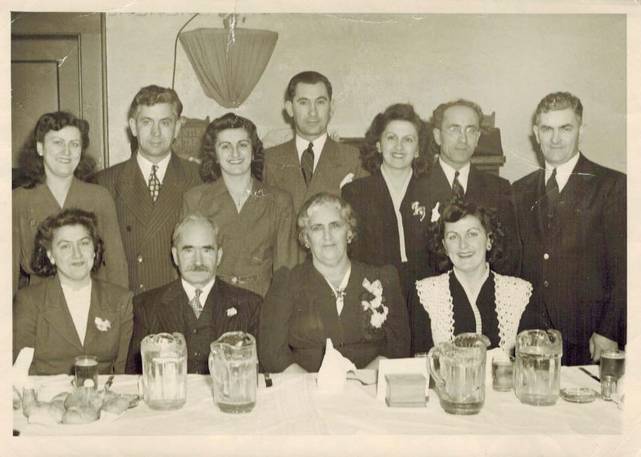


In the United States, the requirement (a.k.a. "foreign language requirement") to study a language other than English (LOTE) has always been a hotly contested issue among the mono-linguists, those who believe that everyone (around the world) should speak English.
There is much that has already been said in this regard, a plethora of material available now on the web for those interested. I, in turn, have discussed it here on a previous blog, which you can find below.
Of course, when there is a sudden rise in a country's political notoriety or economic power, these same above-mentioned mono-linguists somehow transform their thinking and decide it is a good idea to study said country's language. As a result, then, all other languages suffer budget cuts so the langue de jour can be offered. Of course, we all know that within the two worlds of economics and politics, English has become the lingua franca (Pardon me for not translating!).
What many do not know is that our founding fathers, as we know them, were proficient in LOTEs. Thomas Jefferson, in fact, can be readily considered one of our country's first Italophiles, given his knowledge of Italian and his close friends from Italy, two of whom are the famous Philip (Filippo) Mazzei and the not too well known Carlo Bellini, whom Jefferson appointed to teach Italian at the College of William and Mary—Indeed, the first professor of Italian in the United States. Jeffereson, in fact, was well aware of the importance of knowing profoundly another langauge, as he once stated to Mazzei: "You have a way of expressing yourself in your own tongue, which I cannot translate without lossing the effect" (Kevin J. Hayes, The Road to Monticello, p. 149). Jefferson, we see, understood the importance of nuance and subtleties, which, with regard to one's knowledge of the language in question, could readily communicate differently given certain situations.
What follows is a communiqué sent by Brookly College's chapter of the PSC (CUNY's faculty and staff union), announcing the intention of Brooklyn College to eliminate the language requirement. All of this, of course, can be readily seen as a further devaluation of the humanities today across the United States.
Last month the Provost unilaterally ended the college’s foreign language requirement [2]. This was done as part of the Provost’s implementation of the Chancellor’s Pathways initiative. Pathways gives colleges the option of requiring foreign languages, but only for students admitted as freshman or possibly those transfer students without an associates degree. This is known as the College Option [3].
The Provost did not include that requirement in the Pathways framework that he developed. Instead, foreign language courses are given as an optional choice.
The Provost changed the requirement despite the explicit rejection of the Pathways framework [4] by Faculty Council. In fact, it directly contravenes a Faculty Council resolution passed in May of 2012 that established a framework for implementing Pathways in the event that it went forward despite faculty opposition. That resolution called for the implementation of a language requirement for all direct admit and non-Associate degree transfer students.
Other colleges, such as Hunter, used this option to maintain their language requirement, which was the clear will of Faculty Council. The Provost has argued that this would compromise his desire to preserve other upper tier Core courses. Herein lies the ultimate problem. Pathways is a failed system that is reducing standards and creating a one-size-fits-all curriculum at the lowest common denominator.
The Provost’s decision was taken without consultation with Faculty Council or the departments affected by this change, which are Classics, Judaic Studies, and Modern Languages. [...]
Source URL: http://ftp.iitaly.org/magazine/article/language-requirement-ciao-italiano-brooklyn-college
Links
[1] http://ftp.iitaly.org/files/35991cerulli1368106956jpg
[2] http://www.brooklyn.cuny.edu/web/academics/general/pathways/freshmen.php
[3] http://www.cuny.edu/academics/initiatives/pathways/gened/college-option.html
[4] http://cunyufs.org/A/BROOKLYN%20COLLEGEOF%20THE%20CITY%20UNIVERSITY%20OF%20NEW%20YORKFaculty.pdf
[5] http://www.i-italy.org/bloggers/17595/why-liberal-arts-should-be-about-all-languages